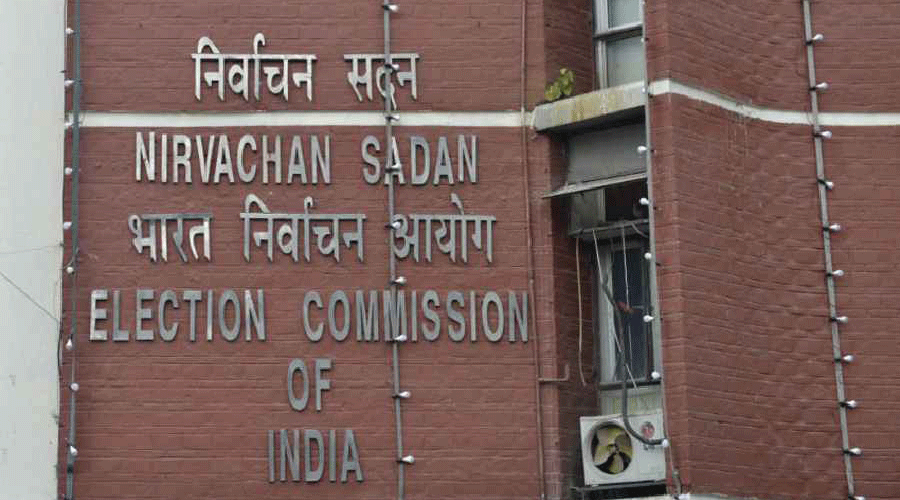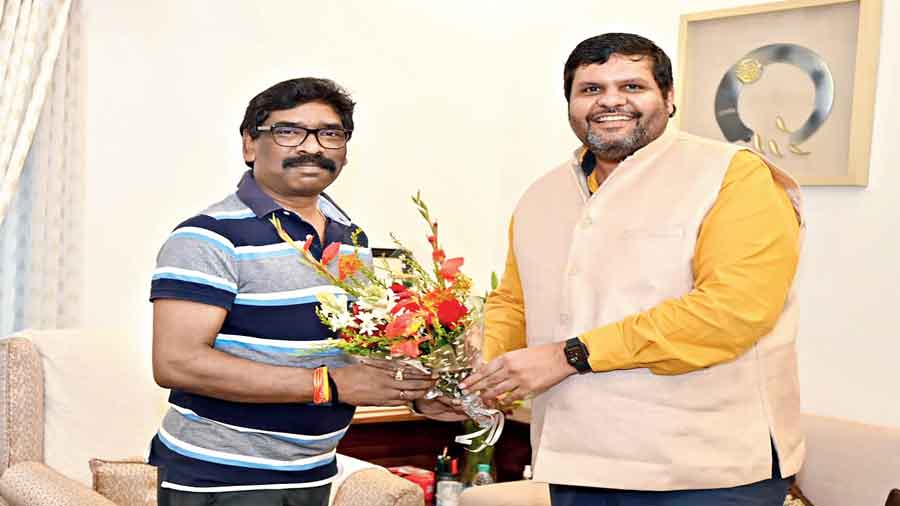The post of the third election commissioner has been vacant for the last four months. While this is not unprecedented, former heads of the poll panel said a delay makes the Election Commission of India vulnerable to a potential deadlock.
Former chief election commissioner (CEC) Sushil Chandra retired on May 14 this year, handing over charge to Rajiv Kumar. The poll panel has been a two-member body since.
Although no elections have taken place during this period, the commission has had to take key decisions on disqualification references against Jharkhand chief minister Hemant Soren and his brother Basant, also an MLA in the eastern state.
T.S. Krishna Murthy, a former CEC, told The Telegraph: “It is not desirable to keep any public office vacant. The EC (Election Commission) is a three-member body and the majority view will prevail in its decision-making. If there are only two election commissioners, there can be a tie in which case decision-making will suffer. It is unfortunate that when I was appointed, the vacancy was filled up after a few months.”
Krishna Murthy had joined the poll panel on January 30, 2000, filling the vacancy left by G.V.G. Krishnamurty on September 30, 1999. Krishna Murthy was CEC between 2004 and 2005.
The commission became a three-member body from a single-member body in 1989, then reverted to a single-member body and again became a three-member body in quick succession in the early 1990s. T.N. Seshan, the then CEC, challenged the latest change in the Supreme Court, which in 1995 upheld the commission as a panel of three.
Election commissioners including the CEC are appointed by the President according to Article 324 of the Constitution. Conventionally, the senior-most commissioner is made CEC. These appointments are recommended to the President by the Union law ministry on the advice of the Prime Minister.
In 2007, the Second Administrative Reforms Commission headed by M. Veerappa Moily recommended that a “collegium headed by the Prime Minister with the Speaker of the Lok Sabha, the leader of Opposition in the Lok Sabha, the law minister and the deputy Chairman of the Rajya Sabha as members should make recommendations for the consideration of the President for appointment of the chief election commissioner and the Election Commissioners”.
S.Y. Quraishi, another former CEC, told this newspaper: “If no elections are happening it doesn’t matter much. If the two commissioners are unanimous, the third becomes irrelevant. Only when the serving two disagree, this becomes important.”
The most recent instance of the poll panel functioning below its full strength for a long time came in 2015.
V.S. Sampath had retired as CEC on January 15, 2015, following which election commissioner H.S. Brahma became the CEC. A two-member commission consisting of Brahma and Nasim Zaidi conducted the Delhi Assembly polls in February 2015, following which the former retired on April 18 that year.
The poll panel became a single-member body under Zaidi, who became CEC, until A.K. Joti was appointed election commissioner on May 13, 2015, followed by O.P. Rawat on August 14 the same year. For seven months, therefore, the commission functioned with a partial panel.
Rawat told this newspaper: “It (a partial panel) has been the case and it affects the EC’s working to the extent that they lose the benefit of another experienced input for their decision-making.”
Polls in Himachal Pradesh and Gujarat are due before January and February, respectively, and are likely to be clubbed. Elections are also due in Jammu and Kashmir, which has been without an elected government since 2018.












